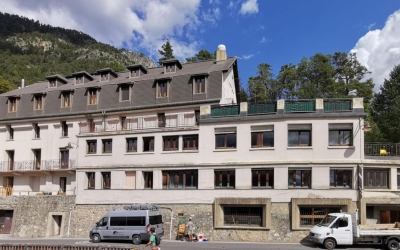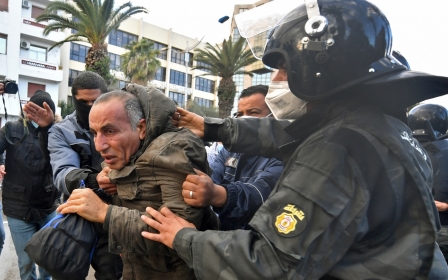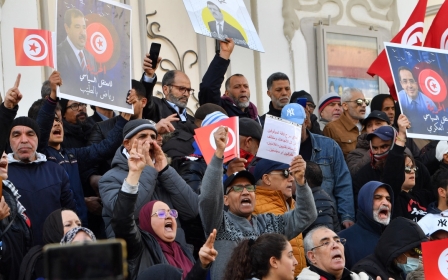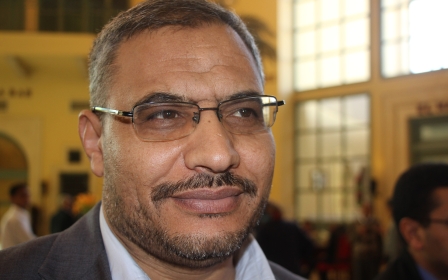Tunisia: EU considering €1bn aid package as migration surges
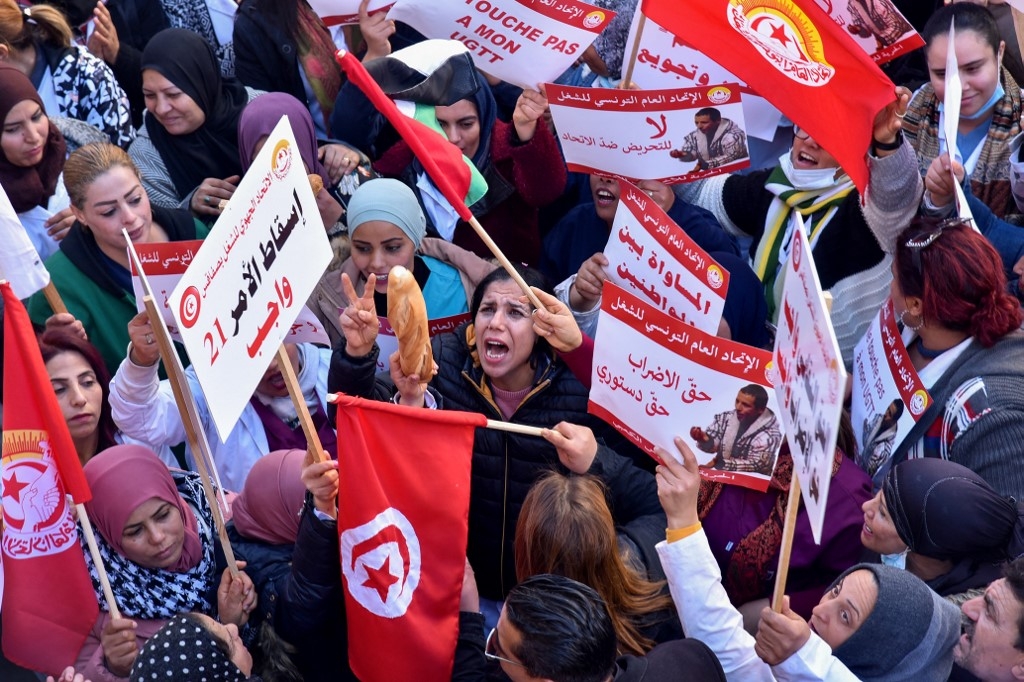
The European Union said on Sunday it may loan Tunisia over €1bn ($1.07bn) to help develop its battered economy, rescue state finances and deal with a migration crisis, with most of the funds contingent on it agreeing to painful economic reforms.
The offer was announced by European Commission President Ursula von der Leyen during a visit to Tunisia along with Dutch Prime Minister Mark Rutte and Italian Prime Minister Giorgia Meloni, who is anxious about migration across the Mediterranean.
Their effort, spurred by increasing concerns in Europe about Tunisia's economic stability, is part of a last-ditch push by major donors to persuade President Kais Saied to agree to the terms of a $1.9bn International Monetary Fund (IMF) bailout.
Saied has so far rejected the proposals, originally made by his own government, to cut subsidies and restructure loss-making state-owned companies, saying this risks a social explosion.
Tunisian state media cited Saied as saying he had "confirmed" during the meeting with the European leaders that "solutions cannot be in the form of diktats and the IMF should review its prescriptions".
New MEE newsletter: Jerusalem Dispatch
Sign up to get the latest insights and analysis on Israel-Palestine, alongside Turkey Unpacked and other MEE newsletters
Donors say time is almost up for Tunisia to agree to the loan and avert a collapse in its state finances, but they are unwilling to lend it money without the reassurance of fully costed reforms that could allow it to repay its debts.
A factsheet released by the EU said the body would lend Tunisia up to €900m to help its macro-finances once it finalised the IMF programme, for which a preliminary agreement was reached in October.
The EU could also provide €150m in budget support this year "in the context of a reform agenda", the factsheet said.
'Window of opportunity'
Von der Leyen added that the EU would also this year provide Tunisia with €100m for border management, search and rescue, anti-smuggling operations and returns "rooted in respect for human rights".
Tunisia's presidency said in a statement that it was creating a partnership with the EU to combat illegal migration. But Saied also said: "The solution that some secretly call for is to settle migrants in exchange for money, a solution that is neither humane nor acceptable."
Meloni, who also visited Tunisia last week, has pressed for the IMF to relax conditions for its loan programme.
She said on Sunday there was "an important window of opportunity" to finalise the aid agreement before the European Council at the end of June.
Von der Leyen also laid out a series of longer-term European efforts to help Tunisia's economy, including ongoing projects for a €150m digital cable link to Europe and a €300m renewable energy power export project.
She said the EU would also expand opportunities for young Tunisians to study, work and train in the EU to help them develop skills that could be used to boost the Tunisian economy.
In March, the World Bank suspended its work with Tunisia after African migrants were attacked in the country, following a xenophobic speech by Saied at the end of February.
The bank's outgoing president, David Malpass, said Saied's tirade had triggered "racially motivated harassment and even violence" and that the institution had postponed a planned meeting with Tunisia until further notice while it assesses the situation.
In Saied's speech, widely denounced as racist, the Tunisian president had said “there has been a criminal plan since the beginning of the century to change the demographic structure of Tunisia and there are parties that received large sums of money after 2011 for the settlement of illegal immigrants from sub-Saharan Africa”.
The US also weighed into Saied's comments.
“As you heard from the World Bank, we too are deeply concerned by President Saied's remarks regarding migration from sub-Saharan Africa to Tunisia and reports of arbitrary arrests of migrants in recent weeks," US State Department Spokesperson Ned Price had said.
"We urge Tunisian authorities to meet their obligations under international law to protect the rights of refugees, asylum seekers and migrants," he added.
Engulfed in crises
Tunisia has been engulfed in crises since July 2021, when Saied unilaterally suspended parliament and dissolved the government in what many have called a "constitutional coup".
He subsequently ruled by decree, before pushing through a new constitution that enshrined his one-man rule.
Tunisia’s economy has imploded, with the country wracked by high inflation and shortages of basic commodities from fuel to cooking oil, a crisis exacerbated by the war in Ukraine.
Saied has also become more bellicose with western officials. In February he ordered the expulsion of Esther Lynch, Europe's top trade union official, over a speech his office called "blatant interference" in the country's internal affairs.
Middle East Eye delivers independent and unrivalled coverage and analysis of the Middle East, North Africa and beyond. To learn more about republishing this content and the associated fees, please fill out this form. More about MEE can be found here.


